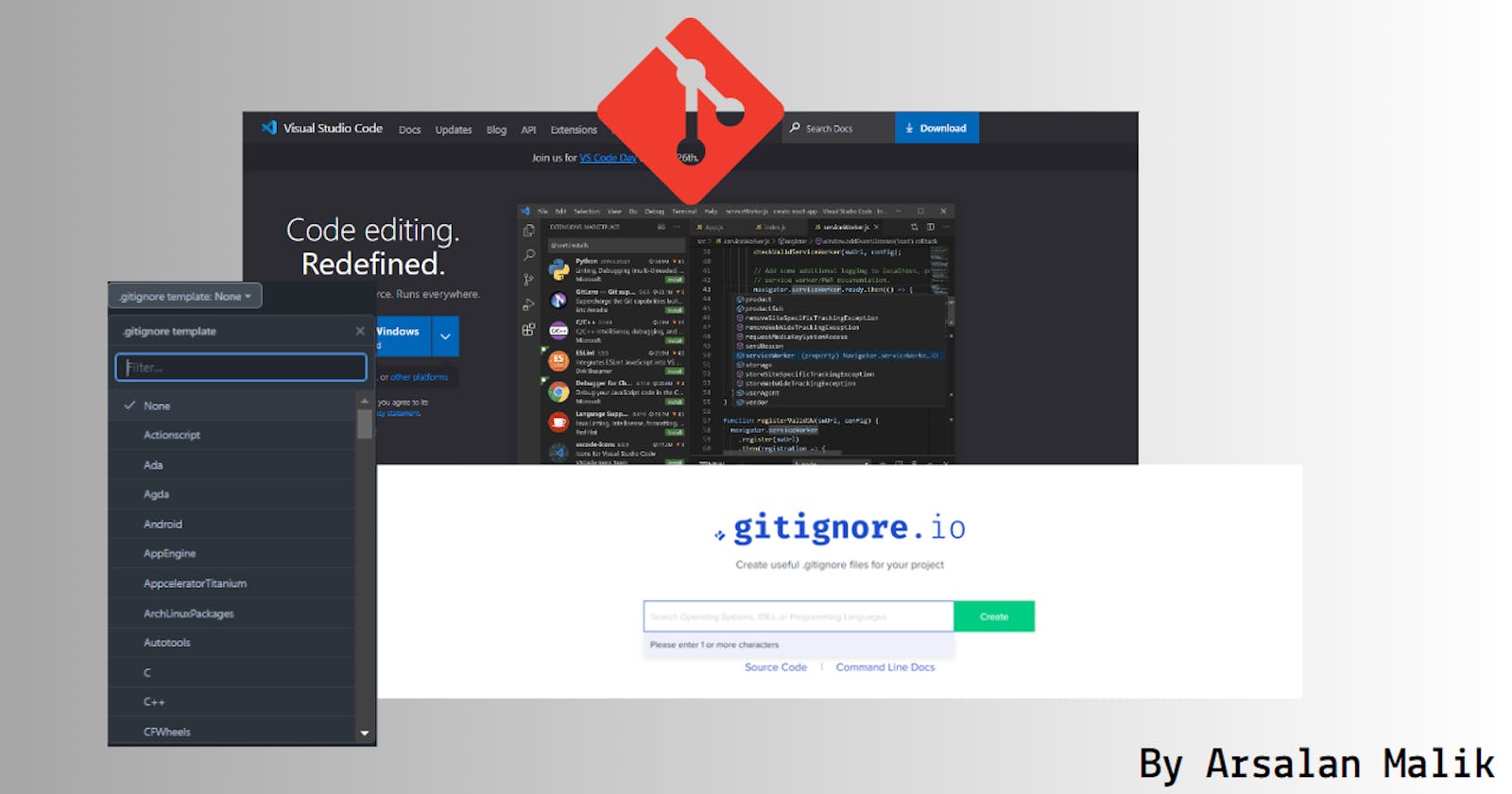Read this before pushing code to your repository.
{Protect your code.}
.gitignore file
A .gitignore file is important in a Git repository because it tells Git which files or directories to ignore and not include in version control.
There are many types of files that should not be tracked in a Git repository, such as:
log files
build artifacts
credentials
configuration files
temporary files
Including these files in your Git repository can make it cluttered and bloated, and potentially expose sensitive information.
By creating a .gitignore file, you can specify which files and directories Git should ignore, so they will not be committed to the repository. This helps keep your repository clean and focused on the important files that should be versioned.
In this article, I will discuss three methods to generate a .gitignore file automatically to make your work easier.
Using gitignore.io
gitignore.io is an open-source tool that allows you to generate a .gitignore file with just a button click. The most useful feature of gitignore.io is its ability to connect to multiple programming languages and frameworks. So, it is useful when working with multiple programming languages or frameworks in a single Git repository.
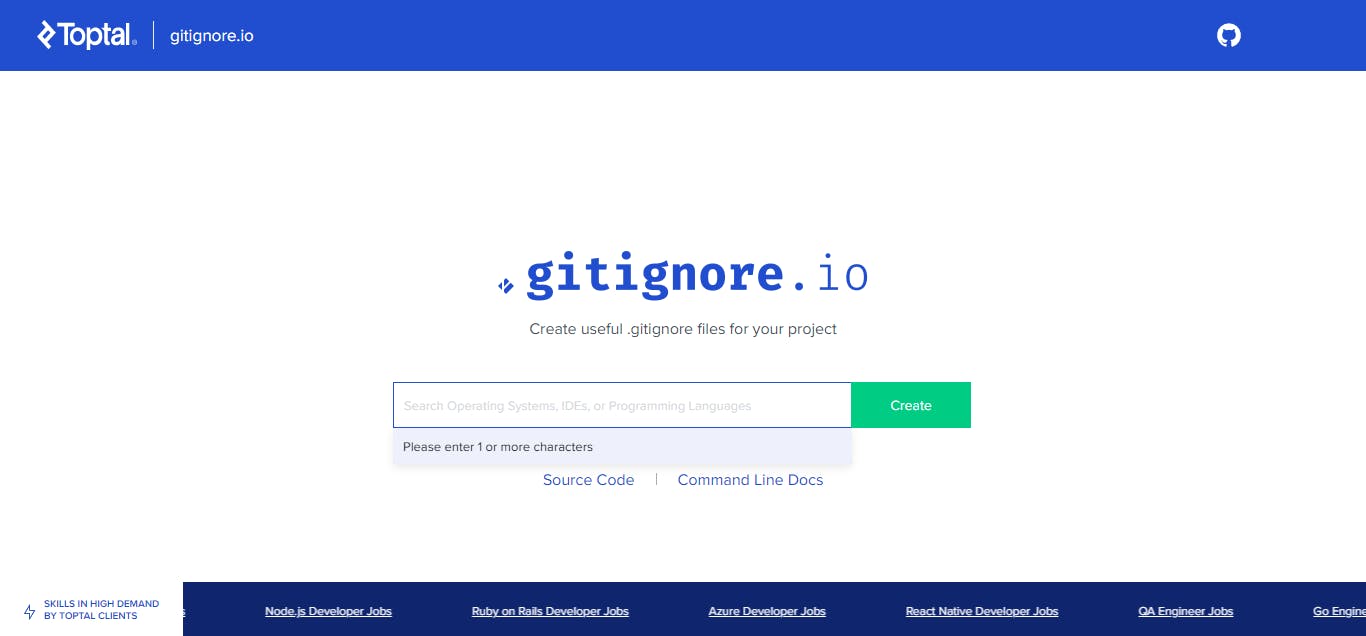
For example, if you are working on a Ruby on Rails project, you can generate a .gitingore file using gitignore.io with the following steps.
Step 1: Enter the following keywords in the search bar :
Ruby RailsStep 2: Click Create, and you will be redirected to a new page with the .gitignore file. It will have all the default files that are not required to be pushed into the Git repo for the languages or frameworks specified.
# Created by https://www.toptal.com/developers/gitignore/api/ruby,rails
# Edit at https://www.toptal.com/developers/gitignore?templates=ruby,rails
### Rails ###
*.rbc
capybara-*.html
.rspec
/db/*.sqlite3
/db/*.sqlite3-journal
/db/*.sqlite3-[0-9]*
/public/system
/coverage/
/spec/tmp
*.orig
rerun.txt
pickle-email-*.html
# Ignore all logfiles and tempfiles.
/log/*
/tmp/*
!/log/.keep
!/tmp/.keep
# TODO Comment out this rule if you are OK with secrets being uploaded to the repo.
config/initializers/secret_token.rb
config/master.key
# Only include if you have production secrets in this file, which is no longer a Rails default.
# config/secrets.yml
# dotenv, dotenv-rails
# TODO Comment out these rules if environment variables can be committed.
.env
.env*.local
## Environment normalization:
/.bundle
/vendor/bundle
# these should all be checked in to normalize the environment:
# Gemfile.lock, .ruby-version, .ruby-gemset
# unless supporting rvm < 1.11.0 or doing something fancy, ignore this:
.rvmrc
# if using bower-rails ignore default bower_components path bower.json files
/vendor/assets/bower_components
*.bowerrc
bower.json
# Ignore pow environment settings.
.powenv
# Ignore Byebug command history file.
.byebug_history
# Ignore node_modules.
node_modules/
# Ignore precompiled javascript packs.
/public/packs
/public/packs-test
/public/assets
# Ignore yarn files.
/yarn-error.log
yarn-debug.log*
.yarn-integrity
# Ignore uploaded files in development.
/storage/*
!/storage/.keep
/public/uploads
### Ruby ###
*.gem
/.config
/InstalledFiles
/pkg/
/spec/reports/
/spec/examples.txt
/test/tmp/
/test/version_tmp/
/tmp/
# Used by dotenv library to load environment variables.
# .env
# Ignore Byebug command history file.
## Specific to RubyMotion:
.dat*
.repl_history
build/
*.bridgesupport
build-iPhoneOS/
build-iPhoneSimulator/
## Specific to RubyMotion (use of CocoaPods):
#
# We recommend against adding the Pods directory to your .gitignore. However
# you should judge for yourself, the pros and cons are listed at:
# https://guides.cocoapods.org/using/using-cocoapods.html#should-i-check-the-pods-directory-into-source-control
# vendor/Pods/
## Documentation cache and generated files:
/.yardoc/
/_yardoc/
/doc/
/rdoc/
/.bundle/
/lib/bundler/man/
# for a library or gem, you might want to ignore these files since the code is
# intended to run in multiple environments; otherwise, check them in:
# Gemfile.lock
# .ruby-version
# .ruby-gemset
# unless supporting rvm < 1.11.0 or doing something fancy, ignore this:
# Used by RuboCop. Remote config files pulled in from inherit_from directive.
# .rubocop-https?--*
# End of https://www.toptal.com/developers/gitignore/api/ruby,rails
Using IDE
Most IDEs have the ability to generate the .gitignore file when creating a new project. IntelliJ IDEs like RubyMine and PyCharm have this ability by default, while VSCode uses an extension called gitignore by CodeZombie to generate .gitignore files
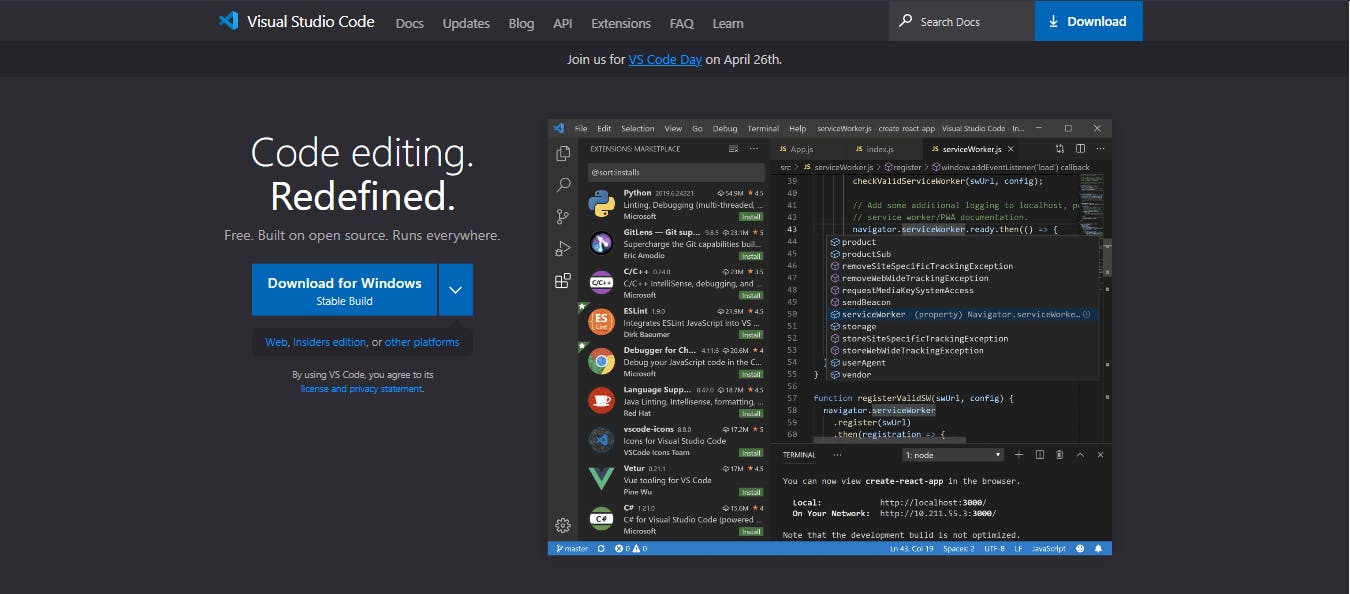
However, not all IDEs provide this feature, and you should double-check the generated .gitignore file before using it.
The following examples show the steps to generating a .gitignore file in VSCode with the help of the CodeZombie extension.
Step 1: Install the gitignore extension for VSCode.
Step 2: Open the command palette using Ctrl+Shift+P and type Add gitignore.

Step 3: Select the framework or the language of your project, and the extension will generate the .gitignore file for you.
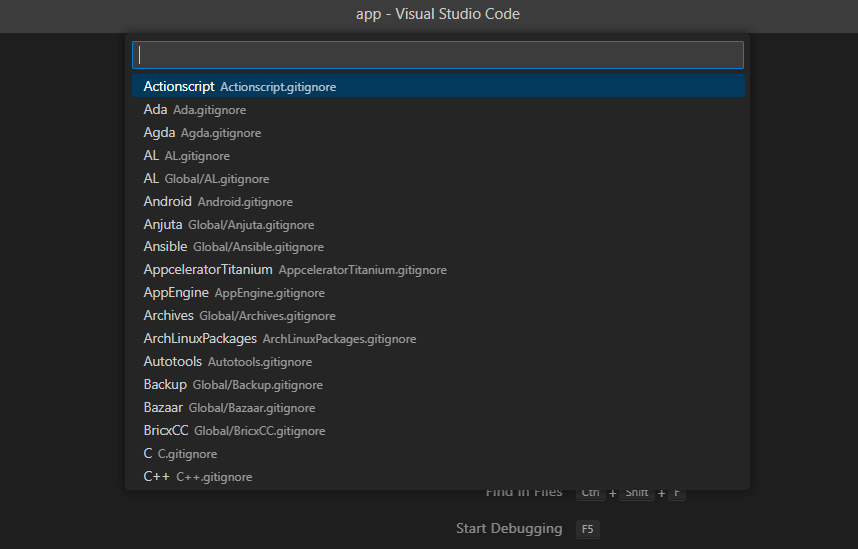
Using the Git repository
Most Git repository hosting services, like GitHub and Bitbucket, already have this feature. You just need to add the .gitignore file from the Add .gitignore dropdown when the repository is created.
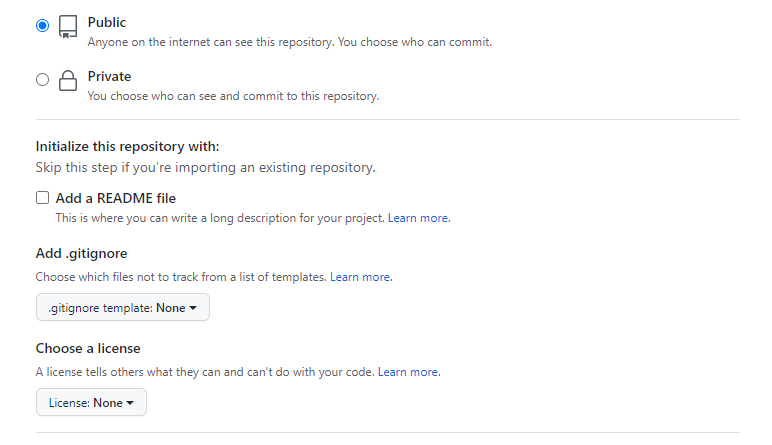
Then, you will get a dropdown to select the language or framework of your project. Once you select the language, it will automatically generate the .gitignore file directly in your repository.
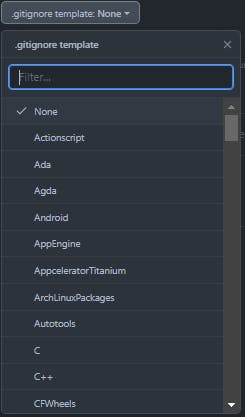
Conclusion
The .gitignore file is a really useful option when dealing with complex projects. This article discussed three approaches to generating .gitignore files automatically. I hope these approaches will help you speed up the development process. Thank you for reading.
Happy Learning!
Feel free to message me on my Social accounts for any help:
